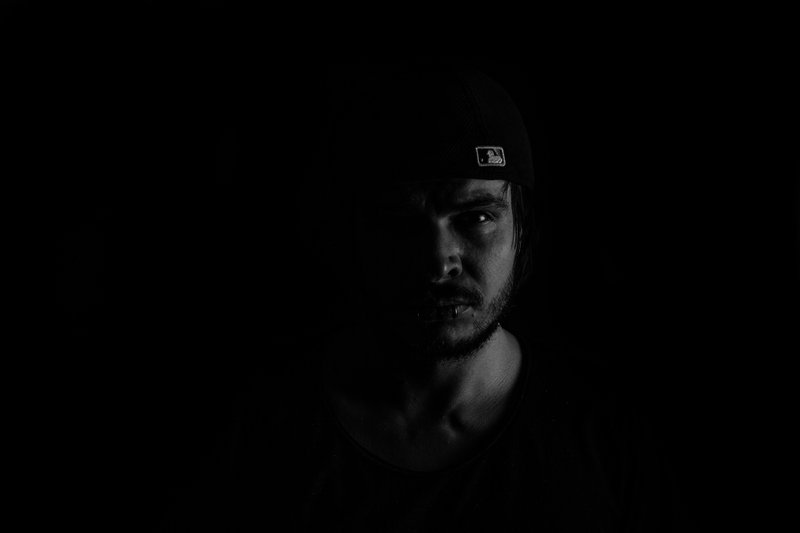How I Fixed My Hormones by Changing My Routine (No Medication Needed)
Modern life is designed to wreck your hormones—processed foods, blue light at night, stress 24/7. If you’re struggling with low energy, weak libido, brain fog, or belly fat, the problem may not be your age… it’s your lifestyle. That’s where a hormone balance lifestyle comes in.
By making intentional daily choices, you can naturally support testosterone, reduce estrogen dominance, and optimize the hormones that keep you strong, focused, and sexually confident.
Why Hormonal Health Matters More Than Ever
Testosterone levels in men have dropped dramatically over the past decades. Research shows that the average male today has 20–30% less testosterone than his grandfather did at the same age. Environmental toxins, poor diet, lack of sleep, and chronic stress are crushing your endocrine system. But here’s the good news—you can reverse it.
The Foundations of a Hormone-Balanced Lifestyle
1. Prioritize Deep Sleep Every Night
Most testosterone is produced during REM sleep. If you’re skipping quality rest, your hormones pay the price. Aim for 7–9 hours per night, and avoid screens at least one hour before bed. Use blackout curtains, reduce EMF exposure, and go to bed before midnight.
2. Train Like a Man
Strength training and high-intensity intervals have been proven to elevate testosterone naturally. Skip the chronic cardio and overtraining. Focus on compound lifts—squats, deadlifts, pull-ups—and give your body time to recover. Overtraining can cause a serious overtraining testosterone drop.
3. Eat for Hormonal Power
What you eat either feeds your testosterone… or destroys it. Your diet should be rich in protein, healthy fats, and micronutrients. Eliminate seed oils, processed sugar, soy, and alcohol. Instead, build meals around eggs, red meat, wild-caught fish, cruciferous veggies, and the right fats. For specific food sources, see our article on healthy fats for testosterone.
4. Manage Stress Like a Warrior
Chronic stress spikes cortisol—the testosterone killer. Use breathwork, cold showers, meditation, or nature walks to reduce stress and support a balanced hormonal system. High cortisol not only lowers T but also increases fat storage and inflammation.
5. Ditch Endocrine Disruptors
Plastics, receipts, personal care products, and even your laundry detergent can contain estrogenic chemicals like phthalates and parabens. Switch to glass containers, filter your water, and use natural grooming products. Every small change helps protect your hormonal balance.
Bonus Tips to Boost Hormone Balance Naturally
- Get sunlight daily for vitamin D and circadian rhythm support
- Limit porn to restore healthy dopamine cycles and sexual response
- Practice intermittent fasting or time-restricted eating
- Support your liver with herbs like milk thistle and dandelion root
Signs You Need a Hormone Reset
Not sure if your hormones are out of whack? Watch for these warning signs:
- Low libido or erectile issues
- Fatigue and lack of motivation
- Increased body fat, especially around the belly
- Mood swings or mild depression
- Brain fog or trouble focusing
Combining Lifestyle With Herbal Support
Fixing your lifestyle is the first step. But to speed up results, many men also incorporate testosterone support herbs like Tongkat Ali, Ashwagandha, and Maca. These help reduce stress, improve sleep, and support libido while your lifestyle changes take effect.
Final Thoughts: Your Lifestyle is Your Superpower
You don’t need hormone therapy to feel like a man again. With a few upgrades to your daily habits, you can restore balance, vitality, and confidence—naturally. The secret isn’t in a pill. It’s in your sleep, your plate, your workouts, and your mind.
If you’re ready to reclaim your edge, explore the complete natural method that’s changing men’s lives.
How Hormone Balance Affects Every Area of Your Life
Most men associate testosterone with sex drive or muscle, but its influence goes much deeper. Balanced hormones regulate your mood, your drive to succeed, how you respond to stress, how fast you recover, and even how attractive you appear to others. When hormones are in sync, you’re sharp, strong, and confident. When they’re not, life feels heavy, dull, and directionless.
Hormones and Mental Health
Low testosterone is linked to depression, anxiety, and mood instability. On the flip side, optimized testosterone supports mental clarity, decisiveness, and emotional resilience. If you’ve been feeling emotionally flat or unmotivated, a hormone-focused lifestyle may be your missing link.
Hormones and Sexual Health
A healthy libido is a direct sign of a well-functioning endocrine system. Testosterone governs arousal, erections, and even sexual confidence. Implementing a hormone balance lifestyle isn’t just about health—it’s about performance where it matters most.
Designing Your Daily Routine Around Hormonal Optimization
Every hour of your day affects your hormones. From your first exposure to sunlight to your last thought before bed, each habit either supports or sabotages your internal chemistry. Here’s how to design a daily rhythm aligned with your biology.
Morning:
- Wake up at the same time daily (consistency stabilizes cortisol)
- Get 15 minutes of sunlight exposure within 30 minutes of waking
- Do light movement (walk, stretch, or pushups)
- Eat a protein-rich breakfast (eggs, liver, steak, avocado)
Midday:
- Train with resistance (45 min weight training or HIIT)
- Hydrate with electrolytes (add sea salt or magnesium)
- Avoid sugary lunches or caffeine crashes
- Practice 3 minutes of breathwork to reduce cortisol
Evening:
- Eat balanced dinner with protein and healthy fats
- Turn off screens 1 hour before bed
- Take magnesium or ashwagandha to relax
- Sleep in total darkness and cool temperature
Hormonal Enemies Hiding in Your Home
It’s not just what you eat or how you sleep. Hidden toxins in your environment can sabotage testosterone and increase estrogen. Here’s what to eliminate now:
- Plastic containers: Ditch BPA and phthalate-leaching plastics—switch to glass
- Shampoo and deodorant: Most contain parabens and artificial fragrances
- Non-stick pans: Replace Teflon with stainless steel or cast iron
- Air fresheners: Use essential oils or open windows instead
The Role of Insulin and Blood Sugar in Hormone Health
Insulin resistance is one of the biggest hidden causes of low testosterone. When your body is constantly bombarded with sugar and high-carb meals, your insulin spikes—and testosterone drops. Chronic high insulin also leads to belly fat, man boobs, and low libido. Learn more in our article on the insulin testosterone connection.
Fix Your Blood Sugar, Fix Your Hormones:
- Cut processed carbs and sugars
- Eat protein and healthy fat with every meal
- Don’t snack constantly—let insulin rest
- Try a 16:8 intermittent fasting schedule
Real-Life Transformation Stories
“I had no energy, gained weight, and my sex drive was gone. After 90 days of cutting plastics, lifting weights, and fixing my diet, I felt like a new man. My T levels jumped 40%—no drugs.” – Alex, 37
“Simple changes like walking in the sun, fasting, and better sleep helped me lose 20 pounds and restore my confidence. My wife noticed the difference before I did.” – Leo, 44
Signs of Progress: What to Expect
You don’t need blood work to feel results. Within weeks of living the hormone balance lifestyle, you’ll notice:
- Morning wood returns
- Increased strength in the gym
- Better sleep and vivid dreams
- Higher confidence and assertiveness
- Renewed interest in sex and intimacy
Want Faster Results? Start With the Fundamentals
You don’t have to overhaul everything overnight. Focus on one area first—sleep, diet, or training—and stack new habits gradually. Avoid perfectionism. Progress compounds fast when you stay consistent.
And remember: you’re not alone in this. Thousands of men are ditching low-T lifestyles and reclaiming their masculinity with proven strategies that work.
How Long Before You See Hormonal Changes?
Your hormones won’t shift overnight—but you’ll start noticing signs of improvement within 2–4 weeks of consistent effort. By 8–12 weeks, many men report stronger libido, better sleep, improved strength, and a leaner physique. Your results will depend on your age, current health, and how aggressively you apply lifestyle changes.
Can This Lifestyle Prevent Hormonal Decline with Age?
Aging is inevitable, but hormonal decline is not. By living a hormone-conscious lifestyle, you protect your testosterone and growth hormone levels as you age. That means maintaining muscle, avoiding belly fat, and staying mentally sharp well into your 40s, 50s, and beyond. The earlier you start, the better your results will be.
Conclusion: Take Control of Your Hormones Today
Low testosterone isn’t a life sentence. It’s a wake-up call. And now you have the blueprint to turn things around. A hormone balance lifestyle puts the power back in your hands. No pills, no prescriptions—just smart decisions and consistent action.
Don’t let modern life sabotage your manhood. Take the first step, one habit at a time. Your strength, sex drive, and focus are waiting on the other side. For the complete step-by-step protocol, access the full natural transformation system here.
Bonus: Hormone Hacks Most Men Overlook
Here are three quick strategies that often go unnoticed:
- Cold exposure: Cold showers or ice baths stimulate norepinephrine and can help raise testosterone indirectly.
- Zinc + Magnesium: These minerals are critical for T production and are often depleted in modern diets.
- Sexual discipline: Avoid excessive ejaculation. Retention practices can help increase androgen receptors and hormonal sensitivity over time.
🧠 Frequently Asked Questions About Hormone Balance Lifestyle
Is this lifestyle only for men over 40?
Absolutely not. Men in their 20s and 30s are already facing testosterone decline due to modern habits. A hormone-focused lifestyle is beneficial at any age.
Can this lifestyle replace testosterone replacement therapy (TRT)?
For many men, yes. If your T levels are low due to stress, poor sleep, or diet, you can often recover naturally by upgrading your habits before resorting to synthetic hormones.
📋 Lifestyle Comparison Table
| Lifestyle Factor | Bad Habit | Hormone-Friendly Swap |
|---|---|---|
| Sleep | 5–6 hrs, screens before bed | 8 hrs, dark room, no blue light |
| Diet | Low-fat, processed food | High-protein, healthy fats |
| Exercise | Chronic cardio | Strength training + recovery |
| Stress | Unmanaged, constant | Cold showers, meditation |
| Toxins | Plastics, artificial products | Glass containers, natural grooming |









